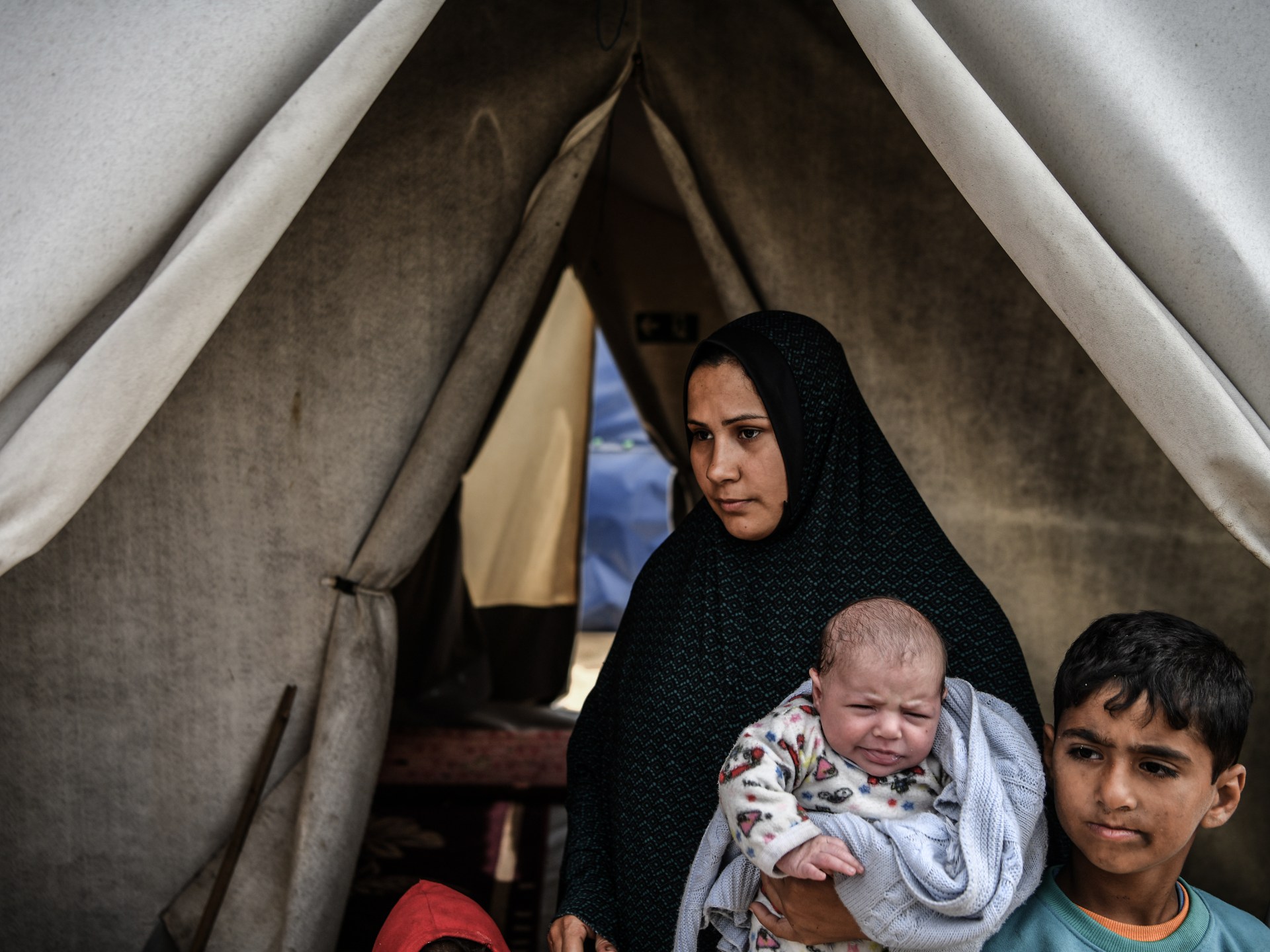Pregnant mothers in Gaza suffer from malnutrition, fear and displacement (Anatolia)
A United Nations official confirmed - yesterday, Friday - that doctors in Gaza no longer see normal-sized newborns, pointing out that 180 women give birth every day in the devastated Strip while they suffer from hunger and dehydration.
The representative of the United Nations Population Fund in Palestine, Dominic Allen, said during a press conference that the situation in Gaza is beyond a disaster, adding that the matter is worse than what he can describe and what the pictures show.
The UN official added that he "left Gaza - which he visited in recent days - feeling afraid for a million women and girls in Gaza, 650,000 of whom are of reproductive age, especially for the 180 women who give birth every day in Gaza."
Allen participated in a mission carried out by the United Nations in northern Gaza a few days ago to deliver medical aid to Al-Ahly and Al-Sahaba hospitals, the latter of which is the only maternity hospital operating in northern Gaza with limited capabilities. He said that while they were traveling there, people’s looks had feelings that were difficult to describe, and that everyone they spoke to They were emaciated and hungry, adding that every day in northern Gaza is a battle for survival.
Allen pointed out that doctors no longer see normal-sized newborns. On the contrary, they see a greater number of newborn deaths due to the suffering of their pregnant mothers as a result of malnutrition, fear, and repeated displacement.
He added, "It would be better for these mothers to hold their children in their arms and not in body bags."
He also pointed out the lack of anesthesia needed by pregnant women undergoing a cesarean section, and that hospital workers are facing an increase in complicated birth cases, which means the need for more health care, denouncing the refusal of the Israeli authorities to allow United Nations aid shipments to pass through.
Allen stressed the need to increase capabilities through more field hospitals, and work to help obtain more capabilities on the ground by increasing reinforcements at the level of individuals working in the health sector.
He renewed the call for a humanitarian ceasefire, and safe, unimpeded and unrestricted access to provide the required humanitarian support on a large scale.
Source: Agencies

